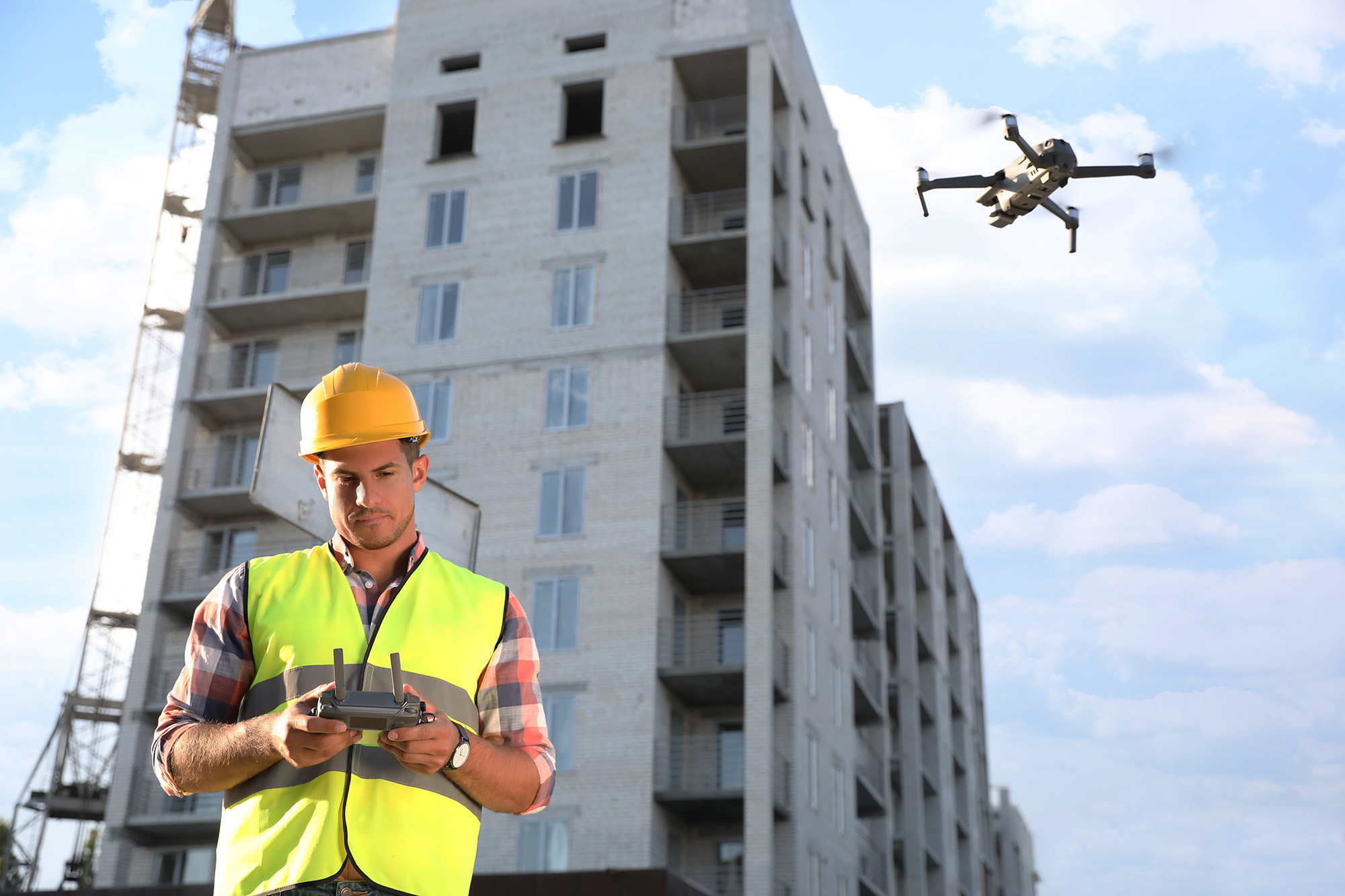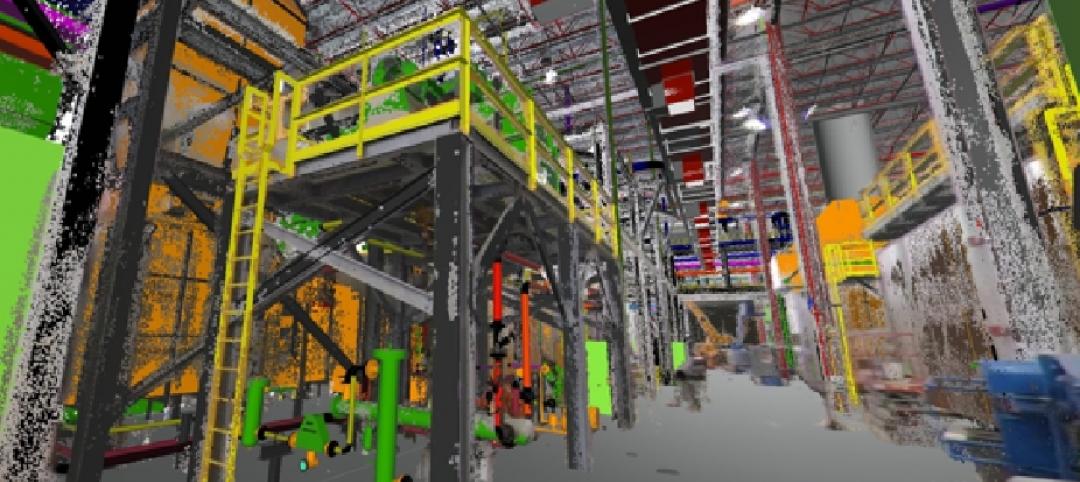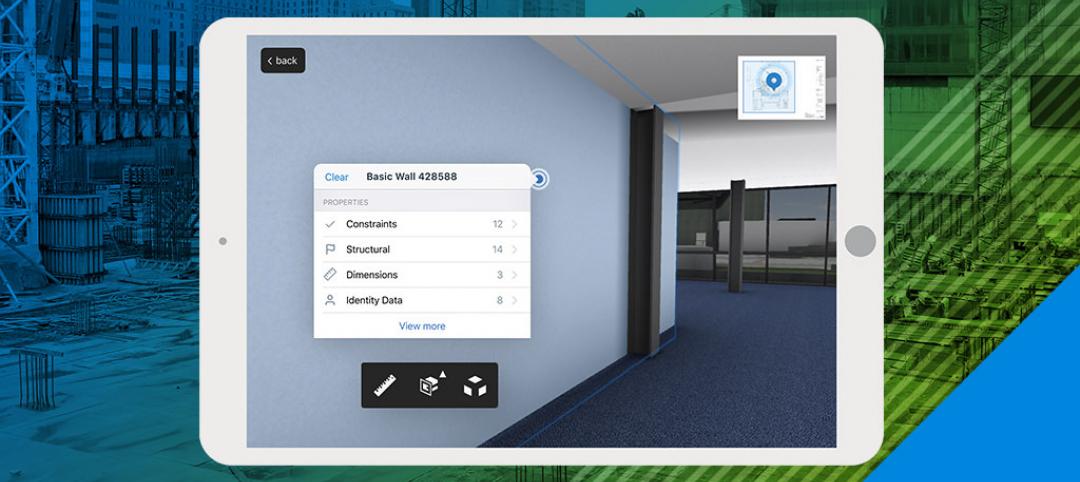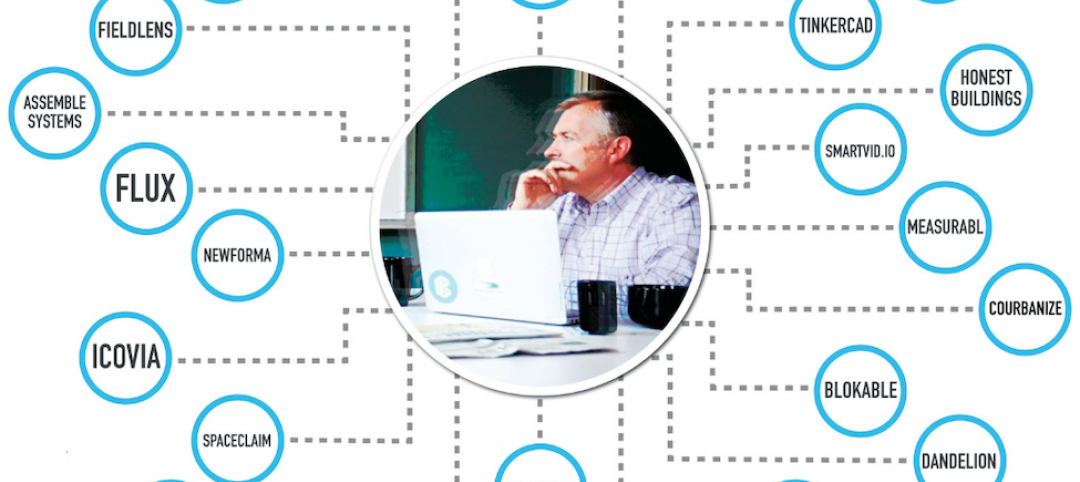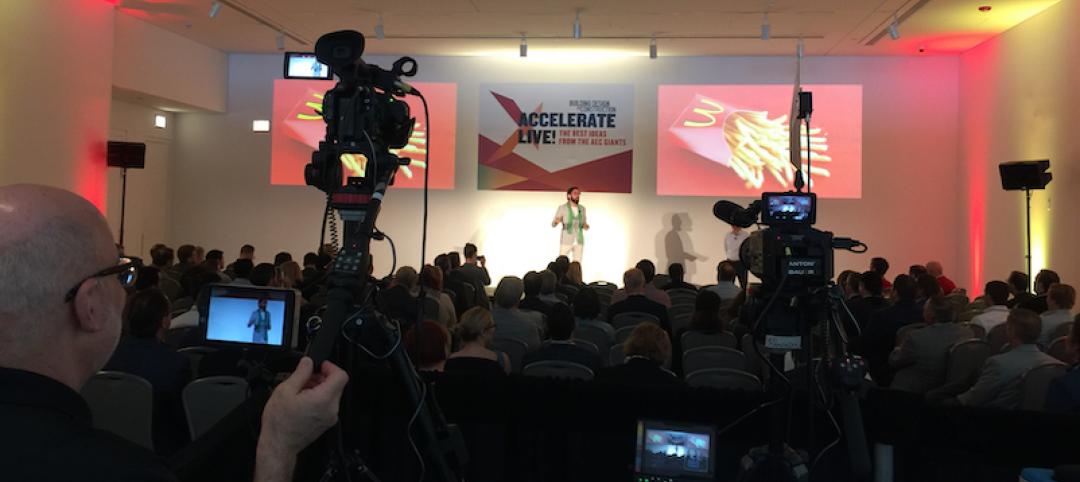BuiltWorlds, a member network dedicated to inspiring and advancing innovation in the AEC industry, has released its 2024 Tools, Equipment, and Robotics Benchmarking Report, an annual report that presents user survey data on category-specific technology adoption and usage. The report revealed that while the industry has been slow to adopt robotic solutions en masse, there has been considerable progress in certain areas, with one provider in particular seemingly pulling ahead as the preferred provider.
“The integration of advanced tools, equipment, and robotics represents a significant leap toward modernizing and streamlining operations within the AEC industry,” wrote BuiltWorlds Research Analyst Audrey Lynch, who authored the report. “This year, we saw the highest levels of adoption in monitoring robotics and service/labor robotics, two of the four main categories we've identified in construction robotics”
Nearly two-thirds of contractors surveyed, who cited use of robotics on jobsites, are either using monitoring and/or service/labor robotics. Thirty-five percent admitted to using autonomous heavy equipment, and a paltry 6% prefabrication robotics.
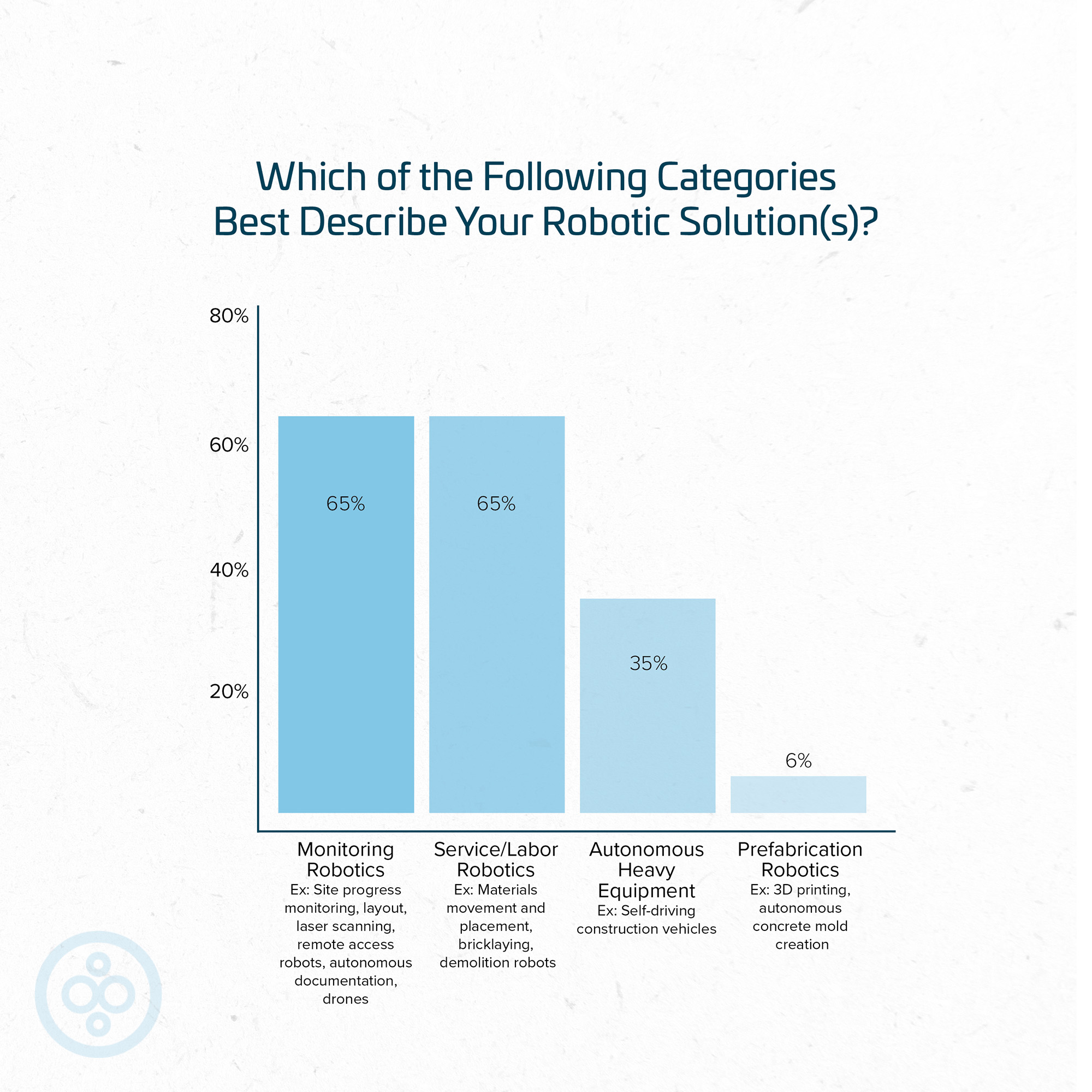
“There is a confluence of factors that are all working in tandem to drive increased utilization of robotics in the construction industry. The primary push forward is an increasingly prominent labor shortage in the industry,” said Tyler Sewall, Senior Director of Research for BuiltWorlds. He added, “Meanwhile, the typical barriers to adoption are slowly waning, leading to an environment more receptive to robotic solutions. The increased use of BIM, improved operability and accuracy, improved data collection and utilization, and an industry more culturally inclined to new technologies have all yielded material increases in the use of robotics.”
A Leading Provider in Dusty Robotics
Among the multiple robotic technology solutions providers named in the report, one provider stood out as both most implemented as well as highest rated: Dusty Robotics, a company that builds robots to help in laying out jobsites.
“Dusty Robotics consistently outperforms the industry average across all evaluated criteria, indicating its strong market position,” Lynch wrote. “With top ratings in adoption/utilization, ease of use, coordination with site activities, and data integration, the solution demonstrates its effectiveness and user-friendliness. It also excels in installation/performance speed and quality (tied with Civ Robotics), highlighting its reliability and efficiency.”
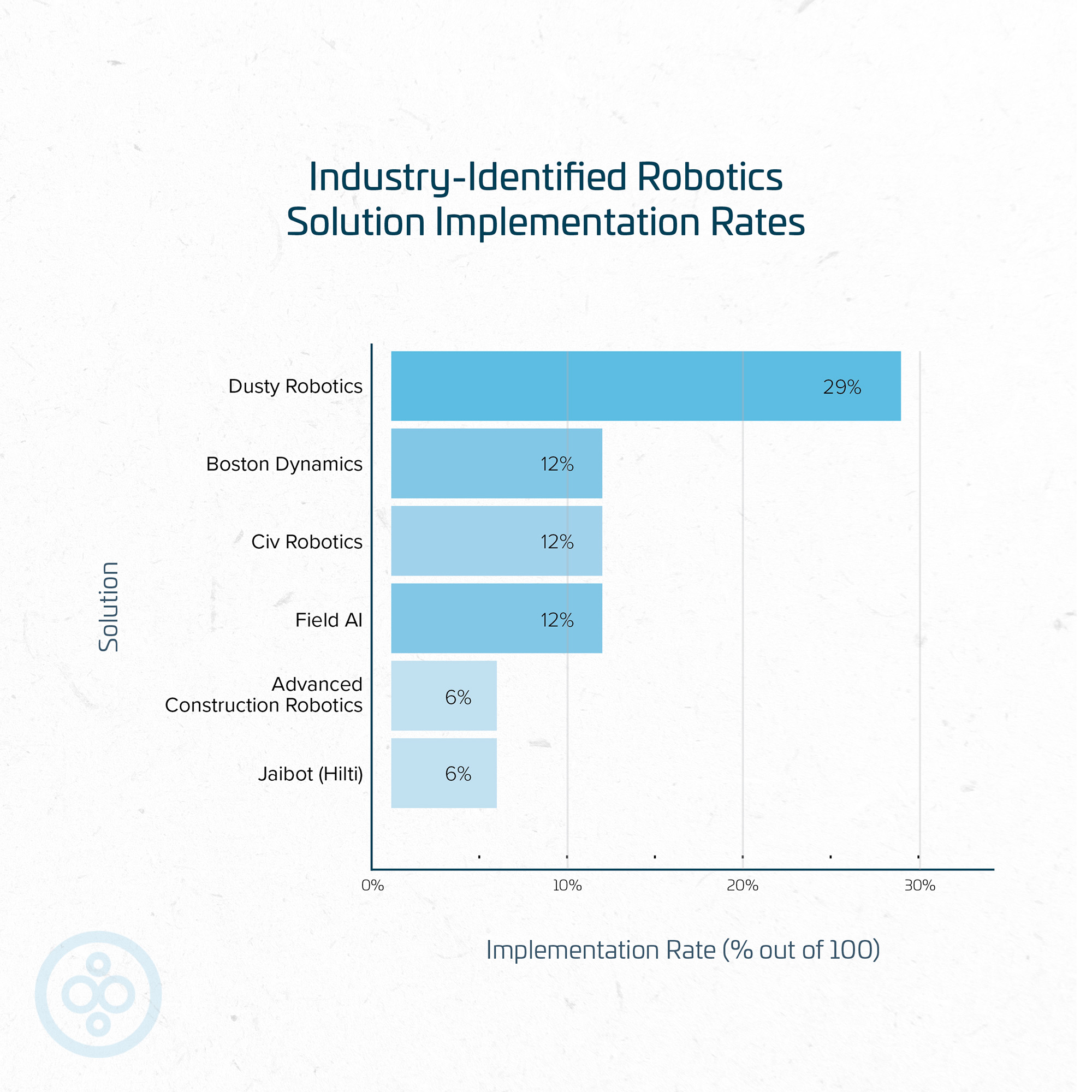
Why ‘Better Adoption’ Isn’t ‘Mass Adoption’
But while this year’s report shows wider scale adoption than years previous, particularly in the areas of service/labor and monitoring robotics, the industry has yet to embrace robotics into its mainstream.
“As much as the case for robotics continues to grow,” Sewall said, “there are, frankly, still so many reasons why robotics adoption isn't widespread, and may not be for a while.”
For one, most robotic solutions, he explained, require some variety of building model in order to operate.
“BIM, while well-adopted in some markets, is significantly underutilized in large portions of the industry.”
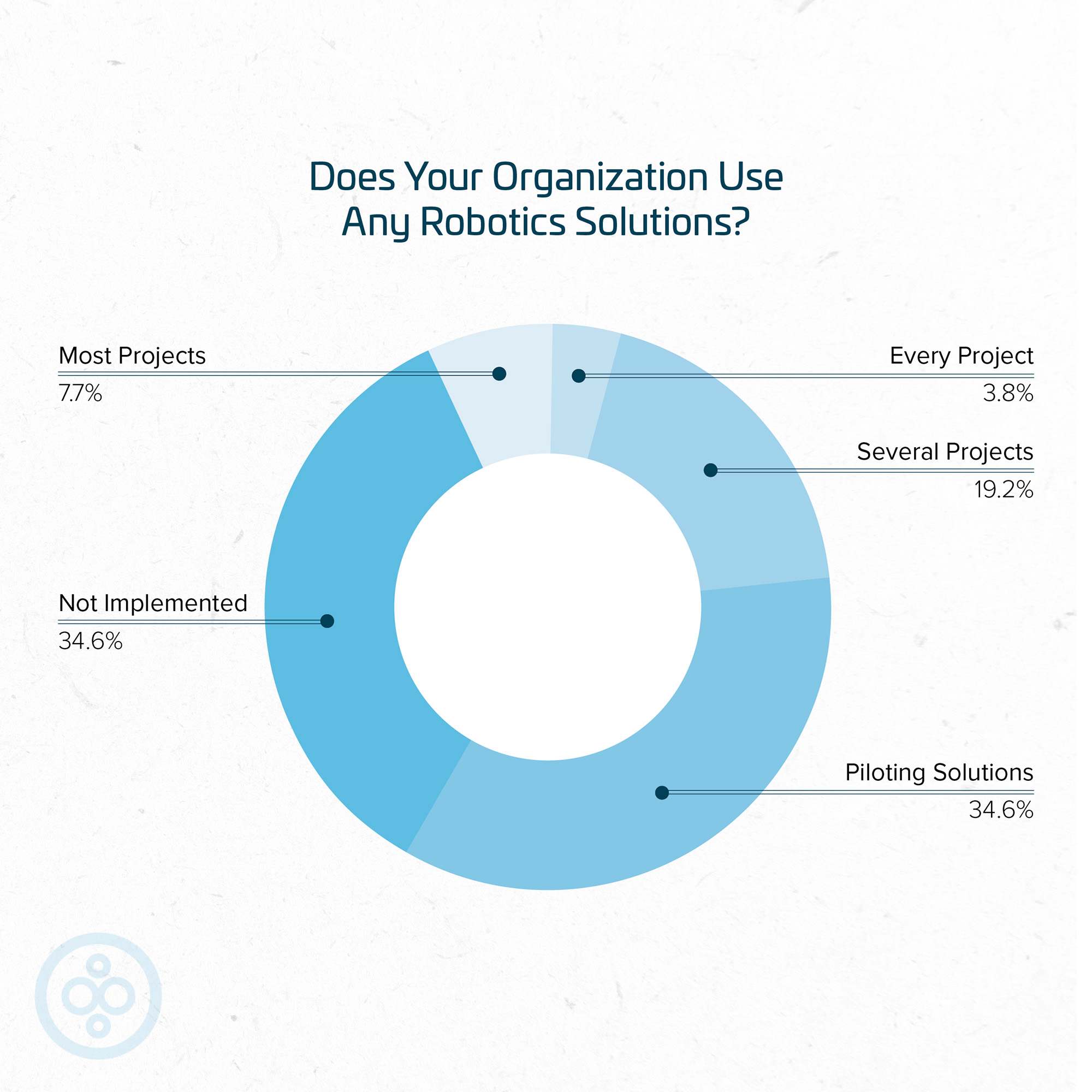
Another reason, Sewall shared, is that robotics, like any new technology, comes with a certain amount of risk—which is a problem in a traditionally risk averse industry.
“With layout robots, for instance, the second question is always, ‘Who owns the layout,’” he explained. “If the general contractor dictates how layout will be done, does that change the owner of the risk?”
Finally, and most obviously, is the cost.
“The up-front costs of robotic solutions are expensive,” Sewall said. “While larger companies can support these costs, many small- and mid-sized contractors simply cannot support any additional spend.”
Still, while there remain significant barriers to mainstream adoption of construction robotics, the data seems to indicate a slow acceptance and utilization of a technology that represents a massive boost to safety, efficiency, and productivity.
Related Stories
AEC Tech | Jun 10, 2019
Mortenson joins forces with robotics technology producer
The partners will focus on equipment used for earthmoving in wind and solar projects.
AEC Tech | May 15, 2019
AI and digital twin firm Reconstruct Inc. closing $7.7 million Series A investment
Reconstruct’s AI and digital twin capabilities provide indoor/outdoor views for project stakeholders to track and resolve project issues in a virtual environment before they impact cost and schedule.
AEC Tech | May 7, 2019
Can machines design?
Instead of debating about whether machines can design, why don’t we ask, What if they could? How might architecture change if computers take over the process entirely?
Codes and Standards | Apr 25, 2019
Report: Contractors invest $1.6 billion in workforce development annually
ABC members increased training spending 45% from 2013, according to a new report.
AEC Tech | Apr 24, 2019
PlanGrid Delivers BIM Data in 2D and 3D Directly to Mobile Users in the Field
One of the construction industry’s most widely-used mobile technologies makes critical data accessible in the field with first major Autodesk integration after acquisition.
Digital Twin | Apr 24, 2019
Can Digital Twin make project management more efficient?
One leading owner’s rep is pushing that idea with its “OneModel” BIM-sharing approach.
Movers+Shapers | Apr 19, 2019
AEC angel investor
Jesse Devitte is among the prescient venture capitalists who’ve bet on the AEC industry finally coming around to design and construction technology.
AEC Tech | Apr 17, 2019
4 fundamental relationships between buildings and machines
If and when AI drives the entire process of design, construction, and operation, buildings could become exponentially smarter with resources, money, time, and performance.
AEC Tech | Apr 12, 2019
NBBJ creates Design Performance Group whose goal is to connect building design with occupant wellbeing
The firm also wants to advance energy efficiency in its projects.
AEC Tech | Apr 10, 2019
Speaker Update! Accelerate AEC Innovation Conference, May 13-14, NYC
BD+C's third-annual Accelerate AEC Innovation Conference (May 13-14, NYC) will explore AI in architecture, offsite construction, smart buildings, AEC business innovations, big data in construction, and much more.


